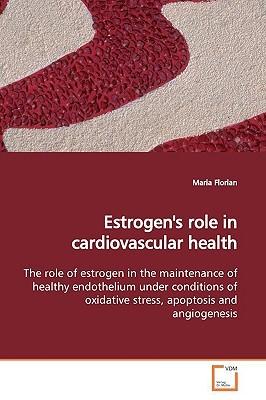
- We will send in 10–14 business days.
- Author: Maria Florian
- Publisher: VDM Verlag
- ISBN-10: 3639152999
- ISBN-13: 9783639152999
- Format: 15.2 x 22.9 x 1.5 cm, minkšti viršeliai
- Language: English
- SAVE -10% with code: EXTRA
Reviews
Description
The place of estrogen in women's health remains controversial. Premenopausal women have a lower prevalence of cardiovascular disease (CVD) than men and hormone replacement therapy (HRT) decreases CVD in postmenopausal women. However, clinical trials failed to substantiate a protective effect of HRT and even showed some harm. Estrogen rapidly mediates the activation of endothelial nitric oxide synthase (eNOS) and increases production of nitric oxide (NO), an important factor for endothelial health. Distinctive results for eNOS, NO and superoxide levels are highlighted by studies on acute and long term effects of estrogen. In human endothelial cells, apoptosis induced by oxidized low-density lipoprotein and the cytokine TNFα, associated with atherosclerosis, is reduced by estrogen. Estrogen's angiogenic properties help healthy endothelium respond to injury, but they also potentiate TNFα- induced angiogenesis, which revascularizes plaques of women with advanced atherosclerosis and exacerbates cardiovascular events. Researchers and clinicians could appreciate this contribution to the undestanding of the paradoxical effects of estrogen on the vascular wall.
EXTRA 10 % discount with code: EXTRA
The promotion ends in 23d.15:43:46
The discount code is valid when purchasing from 10 €. Discounts do not stack.
- Author: Maria Florian
- Publisher: VDM Verlag
- ISBN-10: 3639152999
- ISBN-13: 9783639152999
- Format: 15.2 x 22.9 x 1.5 cm, minkšti viršeliai
- Language: English English
The place of estrogen in women's health remains controversial. Premenopausal women have a lower prevalence of cardiovascular disease (CVD) than men and hormone replacement therapy (HRT) decreases CVD in postmenopausal women. However, clinical trials failed to substantiate a protective effect of HRT and even showed some harm. Estrogen rapidly mediates the activation of endothelial nitric oxide synthase (eNOS) and increases production of nitric oxide (NO), an important factor for endothelial health. Distinctive results for eNOS, NO and superoxide levels are highlighted by studies on acute and long term effects of estrogen. In human endothelial cells, apoptosis induced by oxidized low-density lipoprotein and the cytokine TNFα, associated with atherosclerosis, is reduced by estrogen. Estrogen's angiogenic properties help healthy endothelium respond to injury, but they also potentiate TNFα- induced angiogenesis, which revascularizes plaques of women with advanced atherosclerosis and exacerbates cardiovascular events. Researchers and clinicians could appreciate this contribution to the undestanding of the paradoxical effects of estrogen on the vascular wall.


Reviews